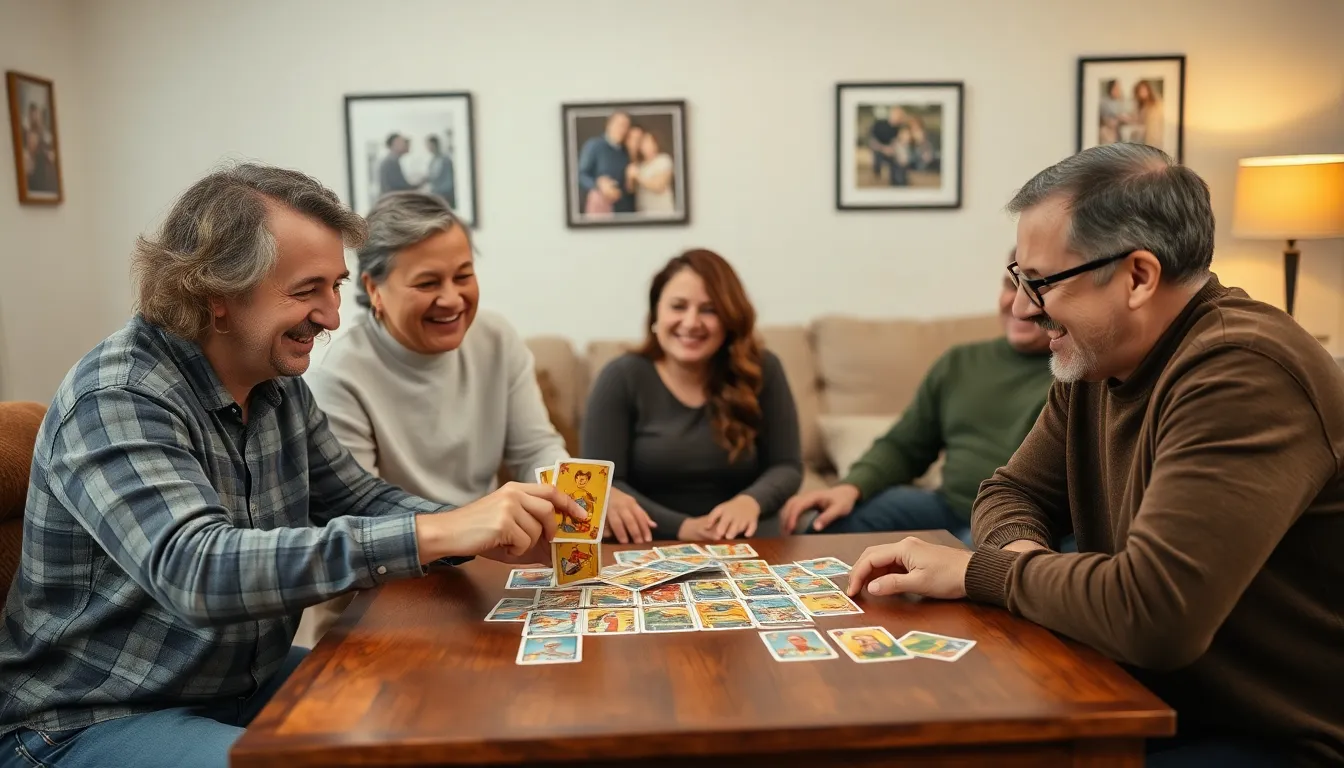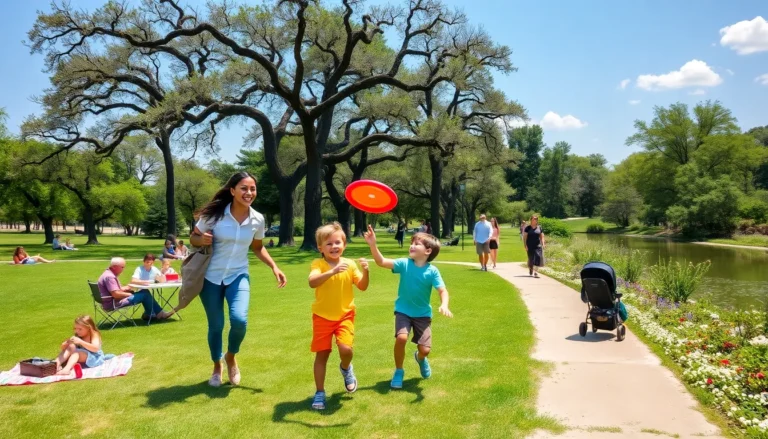Memory matching games aren’t just for kids anymore; they’re a secret weapon for sharpening your brain while having a blast. Imagine a game where you flex those mental muscles, all while trying to outsmart your friends or family. It’s like a workout for your mind, but way more fun than sweating at the gym.
Table of Contents
ToggleOverview of Memory Matching Games
Memory matching games consist of cards or tiles placed face down, requiring players to find pairs by remembering their positions. Various themes exist, such as animals, numbers, and words, enhancing engagement. Players turn over two cards per turn, aiming to match them based on memory recall.
Cognitive benefits emerge from this process, including improved memory retention and concentration. Studies indicate that such games help individuals strengthen neural connections, making them suitable for all ages. They serve as mental workouts, providing fun ways to enhance cognitive skills.
Players often enjoy these games in social settings, fostering teamwork and communication. They create an environment where friends and family can bond while improving their mental agility. Game variations, including digital formats or limited time challenges, add to the excitement.
The accessibility of memory matching games contributes to their popularity. Many versions are available for purchase while others can be found online for free. Printable cards allow players to create personalized experiences, catering to different interests and age groups.
Children specifically benefit from these games, as they develop critical early learning skills through play. Moreover, adults can use them to sharpen their focus and cognitive skills, providing mental stimulation that complements traditional physical activities.
Memory matching games are versatile. They can be used in educational settings or at home, adapting to various skill levels and learning objectives. By engaging in these games regularly, individuals can experience significant improvements in their mental flexibility and problem-solving abilities.
Benefits of Memory Matching Games
Memory matching games offer numerous benefits for cognitive enhancement and social interaction. They’re effective tools for improving various skills across all age groups.
Cognitive Development
Enhanced cognitive development occurs through playing memory matching games. Players strengthen memory retention as they recall the locations of cards or tiles. Improved concentration is another benefit, with focused attention playing a crucial role in gameplay. Studies confirm they stimulate neural connections, contributing to better cognitive function. Players experience increased mental flexibility, allowing them to adapt strategies in changing scenarios. Significant improvements in problem-solving abilities also arise from repeated practice in remembering patterns and associations. Engaging with varying themes—like animals, numbers, and words—adds an element of fun, making cognitive development enjoyable.
Social Skills
Social skills flourish while engaging in memory matching games. Teamwork becomes essential, as players often collaborate to find pairs or compete in friendly matches. Communication improves through discussions about strategies or hints during the game. Enjoying these games with friends and family fosters bonding and enhances interpersonal connections. Sharing successes and challenges creates a supportive environment, allowing players to express emotions constructively. Players experience laughter and enjoyment, deepening relationships through shared experiences. Ultimately, memory matching games not only provide entertainment but also reinforce important social skills in both cooperative and competitive settings.
Types of Memory Matching Games
Memory matching games come in various formats, catering to different preferences and settings. They enhance cognitive skills while providing enjoyable experiences.
Physical Card Games
Physical card games involve traditional cards or tiles. Players lay them face down, taking turns to flip two at a time, aiming to find matching pairs. Such games often feature diverse themes like animals, colors, or characters. Engaging in these games promotes face-to-face interaction and nurtures social skills. Game nights frequently involve families or friends gathered around a table, strengthening connections through shared excitement. Classic examples include Concentration and Go Fish. These activities offer tactile experiences, fostering memorable moments.
Digital Versions
Digital versions of memory matching games provide convenience and innovation. Players access these games on smartphones, tablets, or computers, enabling play anytime and anywhere. Various themes exist, from educational content to beloved characters. Interactive features and animations enhance engagement, appealing to a broad audience. Timed challenges often add an exciting twist, pushing players to improve their speed and concentration. Online platforms also allow for multiplayer options, enhancing social interaction. Popular examples include apps like Memory Match and online game websites. These digital formats ensure the enjoyment and cognitive benefits continue in a modern context.
Tips for Playing Memory Matching Games
Enhancing gameplay in memory matching games involves applying effective strategies and selecting appropriate variations. These tips can significantly improve both enjoyment and cognitive benefits.
Strategies for Success
Start by observing the cards carefully before making any moves. Remembering card locations increases the likelihood of finding matches. It helps to create a mental map of the cards numbered consecutively, making it easier to recall their positions. Players should practice a methodical approach, flipping over cards systematically rather than randomly. Engaging in conversations during play fosters social connections while heightening concentration. Keeping the atmosphere positive and encouraging can lead to a more enjoyable experience for everyone.
Age-Appropriate Variations
Selecting game versions that align with players’ ages maximizes engagement and cognitive challenges. Young children benefit from simple themes like animals or colors, which introduce foundational memory skills. As children’s skills develop, themes that incorporate numbers or words can be introduced for increased complexity. Adults can enjoy advanced versions that incorporate timed challenges or unique themes. Choosing variations that stimulate interest fosters deeper cognitive engagement and creates a fun environment for all ages.
Conclusion
Memory matching games offer an engaging way to boost cognitive skills for players of all ages. They combine fun with mental exercise making them an ideal choice for both social gatherings and solo play. The versatility of these games ensures that everyone can find a version that suits their preferences whether through traditional cards or innovative digital formats.
As players enjoy the challenge of finding pairs they also strengthen their memory retention and concentration. This enjoyable experience fosters social connections and enhances critical thinking skills. By incorporating memory matching games into regular routines individuals can enjoy both the cognitive benefits and the joy of shared moments with friends and family.









